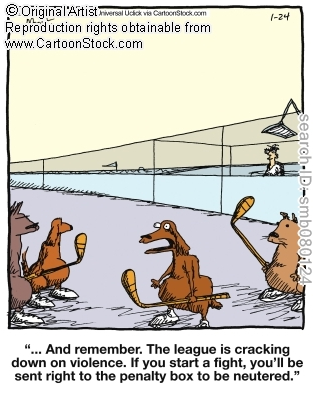 It was after class when the other founders of the DC (Diversity Council) and I got together to take over lecture hall 1. We sat on the stage and began formulating our first plan of what we needed to do. In essence, we wanted to change the school so that we felt more welcome, less alienated and less at odds. Some of us had dealt with the school and were frustrated by the amount a bureaucracy enjoyed by a small school in the Caribbean. To us, the most important characteristics for a doctor were respect and open-mindedness. Few seemed to agree with us though and even fewer were willing to do anything about it. However, for me, I realized how desperately AUC needed to change during my second semester in a lecture for Introduction to Clinical Medicine:
It was after class when the other founders of the DC (Diversity Council) and I got together to take over lecture hall 1. We sat on the stage and began formulating our first plan of what we needed to do. In essence, we wanted to change the school so that we felt more welcome, less alienated and less at odds. Some of us had dealt with the school and were frustrated by the amount a bureaucracy enjoyed by a small school in the Caribbean. To us, the most important characteristics for a doctor were respect and open-mindedness. Few seemed to agree with us though and even fewer were willing to do anything about it. However, for me, I realized how desperately AUC needed to change during my second semester in a lecture for Introduction to Clinical Medicine:
Imagine watching a teaching video where the point of the video is to teach students not to be a jerk to your patient, not to be dismissive and to truly listen. The scene plays out where the young doctor is totally out of line with his older black patient and is condescending. Now picture everyone laughing; laughing at what the patient is saying. My colleagues were laughing at how the patient spoke, his accent and his phrases. They were laughing because he was speaking in slang and apparently that is hilarious.
Another video clip we saw later that lecture, or the next I cannot remember, was about being respectful of different cultures/practices (aka cultural competency). Again, students had a similar reaction to that of the first clip. The clip starts off with a nurse complaining about how patients are doing the work of the “devil” and how the doctor must stop it. They, the nurse, doctor and coworkers, go off to see what is afoot but before doing so speak to the patients daughter waiting at the patients door. She tells them they are doing a Native American ritual and it will pose no medical problem to the patient, her father. Regardless, the doctor looks in on the ritual briefly and comes out of the room. He tells the nurse that it is nothing and that all is well. The clip ends and the teacher changes topic while students behind me are saying, “God damned injuns,” laughter, “Yeh, like we’re going to see one of those”, more laughter.
 It should go without saying that AUC is not the only medical school which suffers from this type of ignorance. However, unlike a good number of American schools which have entire courses dedicated to this subject matter and certain states that dictate how “cultural competency” must be taught, AUC sprinkles the subject matter tangentially into its curriculum for a sum total of approximately 4 hours. Furthermore, few teachers are willing to even teach on the matter let alone talk about it. Issues of race, gender, culture, etc are like the black sheep of the AUC curriculum. But instead of totally ignoring the issue, AUC’s administration and advertisers boast that AUC has a diverse student body and thus, is culturally competent. If you don’t believe me, read the sign outside Dr. Yoshida’s office.
It should go without saying that AUC is not the only medical school which suffers from this type of ignorance. However, unlike a good number of American schools which have entire courses dedicated to this subject matter and certain states that dictate how “cultural competency” must be taught, AUC sprinkles the subject matter tangentially into its curriculum for a sum total of approximately 4 hours. Furthermore, few teachers are willing to even teach on the matter let alone talk about it. Issues of race, gender, culture, etc are like the black sheep of the AUC curriculum. But instead of totally ignoring the issue, AUC’s administration and advertisers boast that AUC has a diverse student body and thus, is culturally competent. If you don’t believe me, read the sign outside Dr. Yoshida’s office.
Now perhaps such ignorance has lessened or disapeared, or at least I hope it has, but I firmly believe that my colleagues and I played a part in the school’s progress. When we first met together (me, dave, joe, mike and chanell) we wanted to change how the university and its students looked at ‘different’ and educate people to the health disparities our countries and communities have faced or will face. Over the course of our inception we wrote two different course proposals, bought a movie series to educate students, started Culture Week and more. We did this all without any support from the school or its administration. However, as already mentioned, there were quite a lot of road bumps. No one had started an organization for years at AUC, no one felt more organizations were needed, and no one knew how to start an organization. It should be noted that Dr. Testa told me he did not know how to start another organization but months later he told Mike and Allison how to do so (they started BGLAM – Bisexuals, Gays, Lesbians and Allies in Medicine).
In the face of these obstacles we decided on a three pronged plan; assess the student body’s view, get the word out about our new organization and build a coalition of support for the DC. So we made a survey, passed out strips of paper in classes and in the rotunda (main part of the AUC campus) and I proceeded to meet with all the heads of the different organizations. We approached the organizations already devoted to celebrating culture or religion such as SNMA (Student National Medical Association), MSA (Muslim Student Association), JMSA (Jewish Medical Student Association), IAPMSO (Inter-Asian Pacific Medical Student Organization, now ASMA), and CMDA (Christian Medical Dental Association). All of them joined right away except CMDA who had reservations of a political nature. After this we approached AMSA, AMWA and the honor society, all of which joined. AMWA later pulled out before the first culture week/talent show because the DC was not in their best interests at the time. AMSA joined after the first culture week.
 The organizations joined because they wanted to work together, they wanted to be part of something bigger and we were all tired of SGA (the student government). Organizations were angry about the money dispursements, how the richer organizations always got extra money, and how real issues at SGA were always tabled because Dr. Testa or whomever found the idea too dangerous. Essentially, people felt like SGA was no longer worth their time. As one teacher put it, “SGA is perhaps the most powerful tool students have and it is definitely muzzled, spade and neutered”.
The organizations joined because they wanted to work together, they wanted to be part of something bigger and we were all tired of SGA (the student government). Organizations were angry about the money dispursements, how the richer organizations always got extra money, and how real issues at SGA were always tabled because Dr. Testa or whomever found the idea too dangerous. Essentially, people felt like SGA was no longer worth their time. As one teacher put it, “SGA is perhaps the most powerful tool students have and it is definitely muzzled, spade and neutered”.
As we collected surverys and we began to see such trends in our classes, we also quickly found that we weren’t going to get any support from SGA or the administration. It was about this time that an idea of mine was seriously considered. My idea was to have the DC also serve as an answer to the SGA’s corruption. I felt that perhaps the DC could serve as another Student Government branch and/or replace the SGA. Unfortunately, things didn’t work out that way.
But what do YOU think?? Does the SGA work as it is supposed to?? Should schools put their money where their mouth is when they teach concepts like “professionalism”??
Related Articles
- Taking Everything for Granted (aucunknowntruths.wordpress.com)
- October Secret Meeting on Hate Crime (aucunknowntruths.wordpress.com)
- Majority of U.S. Medical Schools Have Strong Pharmaceutical Conflict-Of-Interest Policies; Medical Student, Pew Survey Finds (prweb.com)
- University of Wisconsin Students Wage Campaign to Tackle LGBT Bullying (gayrights.change.org)

Leave a comment
Comments feed for this article